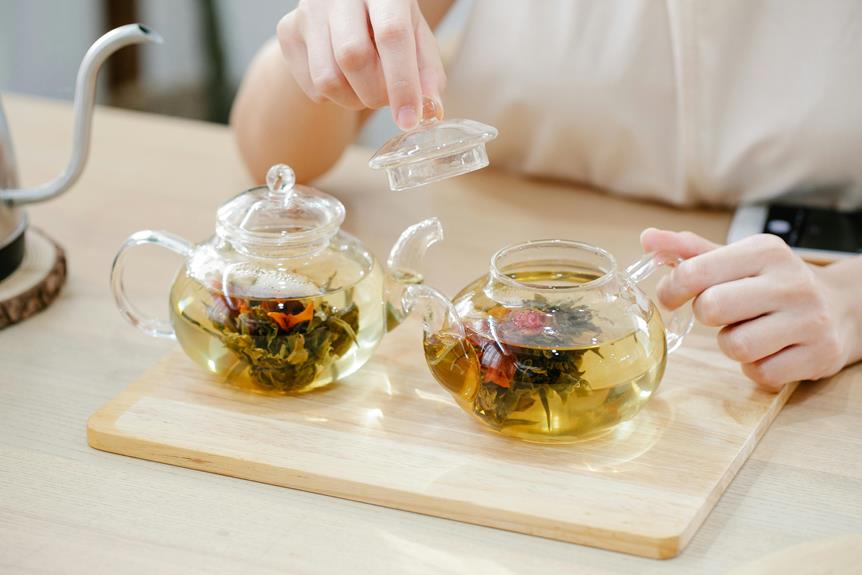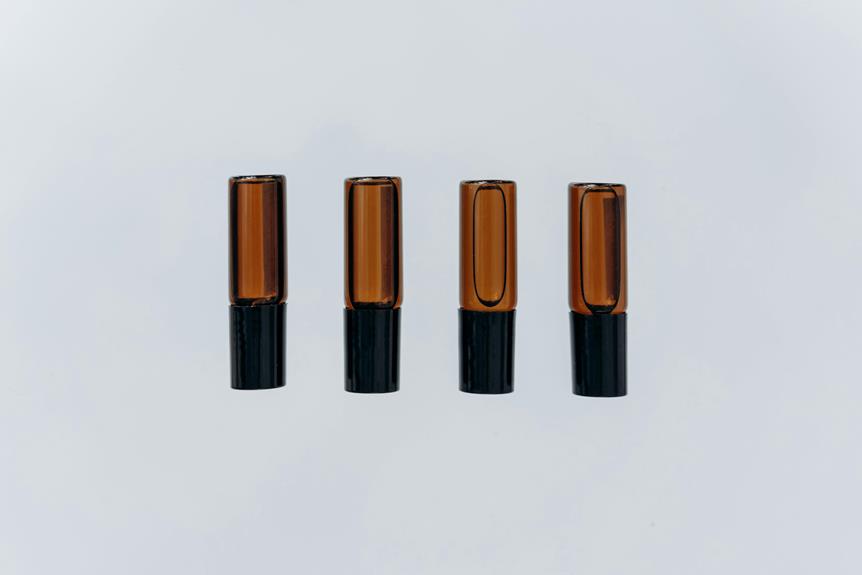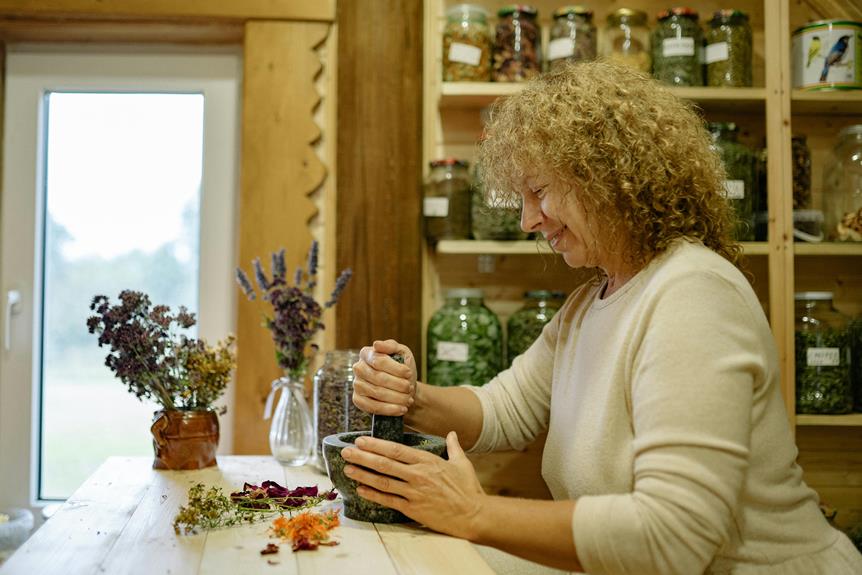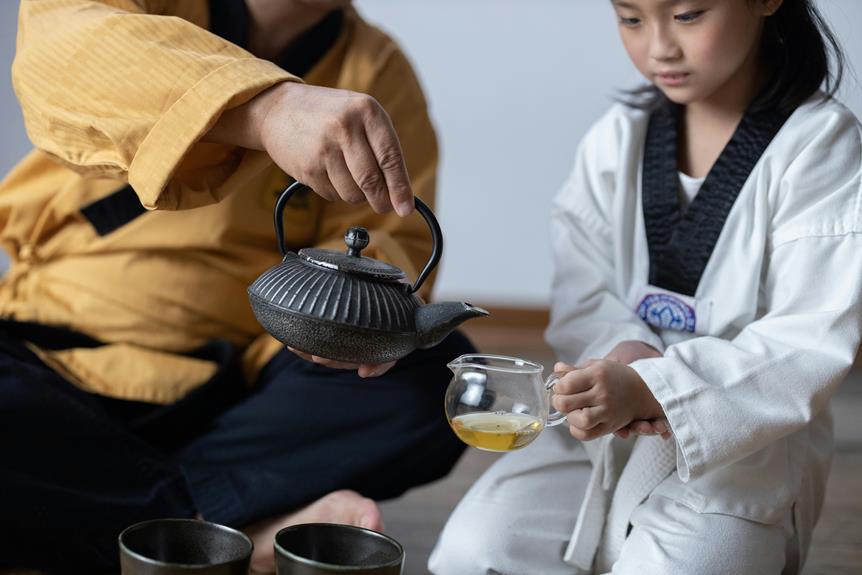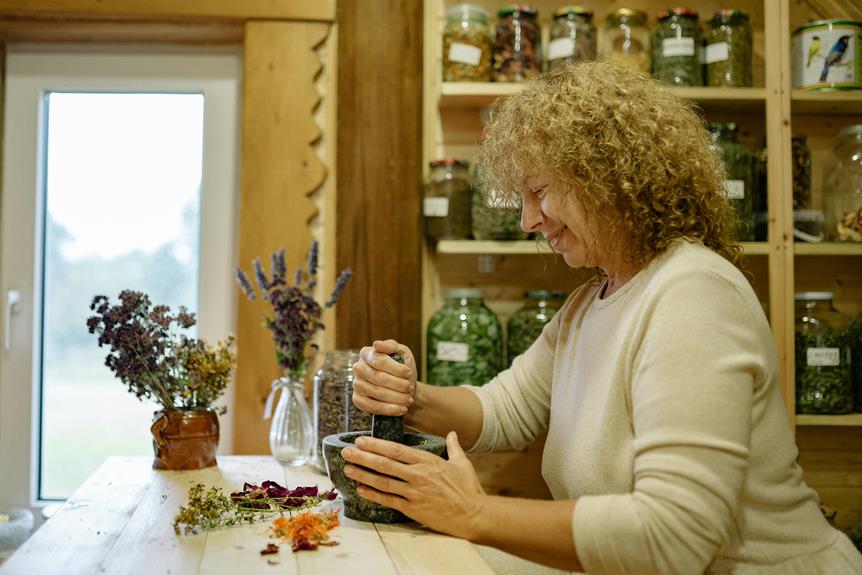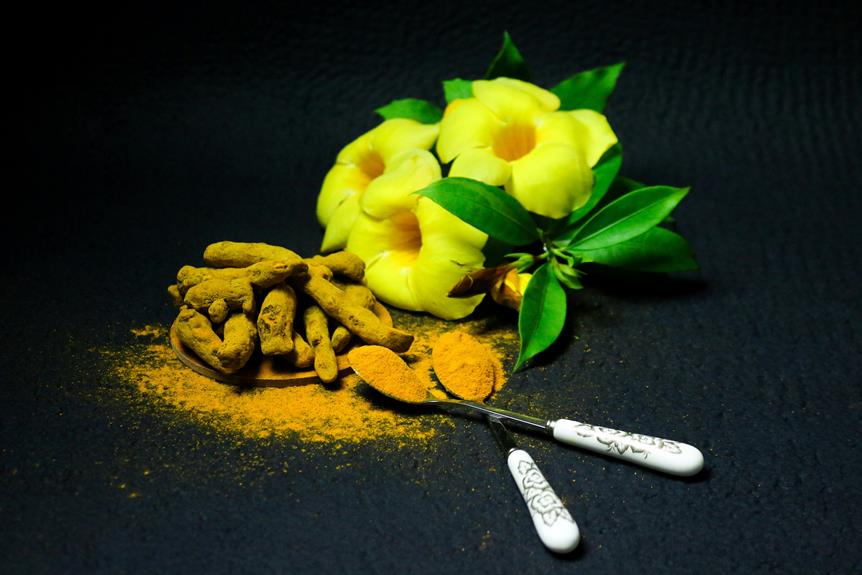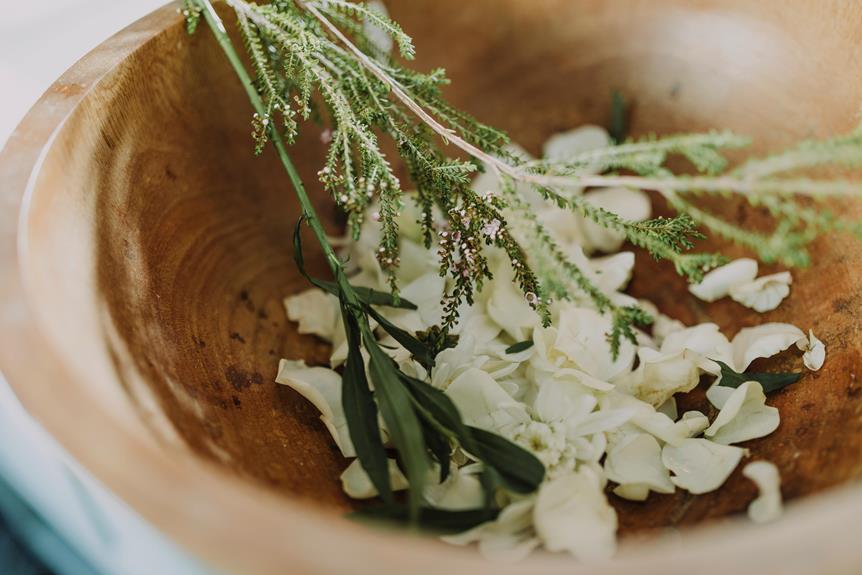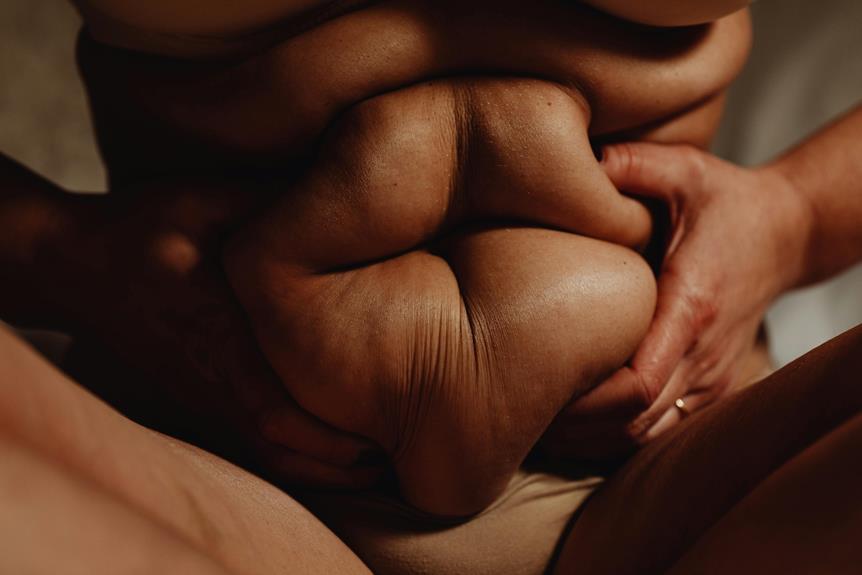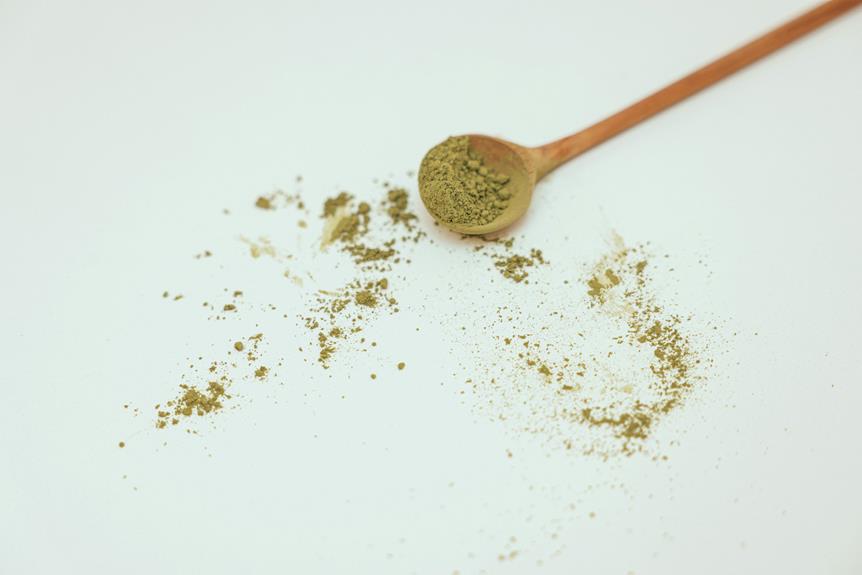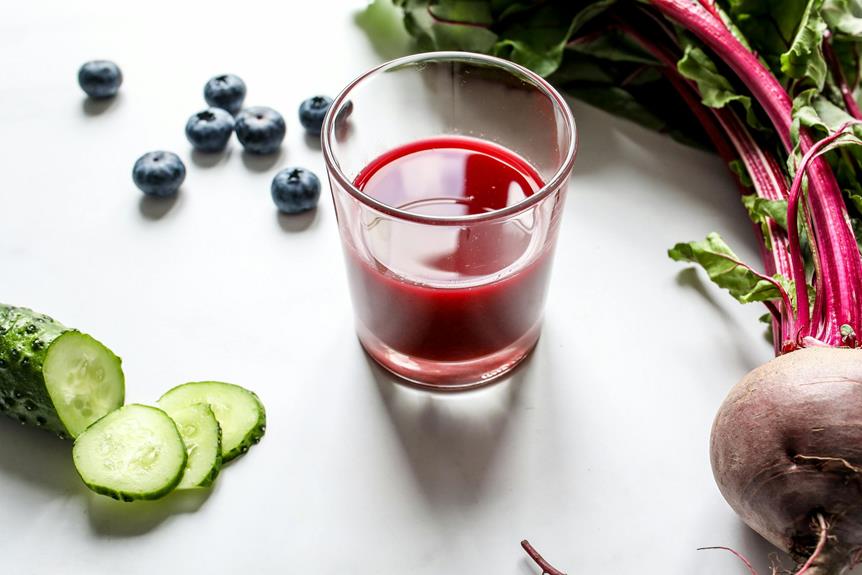To incorporate detox teas into your daily routine, start by selecting a high-quality tea that's rich in antioxidants and made from organic, sustainable ingredients. Schedule a specific time to brew your tea each day, such as first thing in the morning or during an afternoon slump. Make it a habit by setting a reminder on your phone and keeping your tea and accessories within easy reach. As you get into the routine, pay attention to how your body responds and adjust your tea cleanse schedule accordingly. Now, get ready to tap into the full potential of detox teas and take your health to the next level.
Key Takeaways
- Choose a high-quality detox tea that is rich in antioxidants and made from organic, sustainable ingredients.
- Create a tea routine by designating a specific time of day to brew tea and making it a daily ritual.
- Incorporate detox tea into daily routine to support body's natural detoxification processes and maximize results.
- Pair detox tea with complementary foods to harness a synergy that amplifies benefits of both, such as citrus-based tea with omega-3 rich foods.
- Stay committed to tea cleanse routine, monitor progress, and adjust as needed to achieve long-term balance and optimal health.
Choosing the Right Detox Tea
When undertaking a tea cleanse, selecting the right detox tea is crucial, as it sets the tone for your entire detoxification journey.
You'll want to choose a tea that's high in quality and backed by positive brand reviews. Look for teas that are made from organic, sustainable ingredients and are free from additives and preservatives. A good detox tea should be rich in antioxidants and have a balanced blend of herbs that work together to support your body's natural detox processes.
Don't be swayed by fancy packaging or trendy marketing claims. Instead, do your research and read reviews from other customers who've used the tea.
Look for brands that are transparent about their ingredients and manufacturing processes. Check if the brand has any certifications, such as USDA Organic or Fair Trade.
Creating a Tea Cleanse Schedule
To get the most out of your detox tea, you'll need to create a schedule that works for you, taking into account your daily routine, lifestyle, and health goals. This will help you plan out when to drink your tea to maximize its benefits.
Start by mapping out your daily routine in a daily planner or calendar. Identify the times when you typically feel sluggish or bloated, as these may be the best times to drink your detox tea. Consider setting reminders on your phone or placing sticky notes in strategic locations to remind you to drink your tea.
Aim to drink at least one cup of detox tea per day, but you can adjust the frequency and amount based on your individual needs. You may want to drink a cup in the morning to boost your energy, or before bed to aid in digestion.
Create a tea routine that you can stick to, even on busy days. By incorporating detox tea into your daily routine, you'll be more likely to make it a habit and see the benefits it can bring.
Preparing Your Body for Detox
Now that you've created a schedule for your tea cleanse, it's time to focus on preparing your body for the detox process, which starts with making some simple lifestyle adjustments.
To get the most out of your tea cleanse, you'll want to create an environment that supports your body's natural detoxification processes. This means making conscious choices about what you eat and how you live.
Mindful Eating: Start paying attention to your hunger and fullness cues, eating slowly, and savoring your food. This will help you develop a healthier relationship with food and reduce digestive stress.
Gut Health: Support your gut microbiome by incorporating fermented foods and probiotics into your diet. A healthy gut is essential for effective detoxification.
Hydration: Drink plenty of water throughout the day to help your body flush out toxins and function at its best.
Reduce Stress: Find ways to manage stress, such as meditation or yoga, to minimize its impact on your body's detox processes.
Incorporating Tea Into Your Morning
You start your day by brewing a warm cup of tea, setting a positive tone for your morning and kickstarting your body's natural detoxification processes. As you sip your tea, take a few moments to reflect on your intentions for the day. Repeat a morning mantra to yourself, such as 'I am grateful for this new day' or 'I am worthy of a healthy and happy life.'
This quiet moment of mindfulness sets the stage for a productive and fulfilling day.
Incorporating tea into your morning routine can become a sacred ritual. Develop a tea ritual that works for you, whether it's lighting a candle, reading a daily devotional, or simply savoring the aroma of the tea.
This daily practice helps to calm your mind and energize your body, preparing you to take on the day with clarity and purpose.
Boosting Energy With Afternoon Tea
As the morning's energizing effects start to wane, a steaming cup of afternoon tea can reignite your energy and help you power through the rest of your day. This daily ritual can become an essential part of your afternoon routine, providing a much-needed boost to get you through the slump.
By incorporating detox teas into your afternoon rituals, you can experience a natural energy lift without the crash that often comes with caffeine or sugary snacks.
Choose a tea that's high in antioxidants, such as green tea or yerba mate, to combat fatigue and boost your immune system.
Add a squeeze of fresh lemon to enhance the flavor and stimulate digestion.
Take a few moments to breathe deeply and focus on the present, letting go of any stress or anxiety.
Pair your tea with a healthy snack, like nuts or fruits, to stabilize your blood sugar levels and provide sustained energy.
Tea and Food Pairing for Optimal Health
By thoughtfully pairing your tea with complementary foods, you can harness a synergy that amplifies the benefits of both, leading to a more balanced and nourished body.
This harmonious union is all about aligning flavor profiles and nutrient synergy.
For instance, a citrus-based tea like lemon ginger pairs beautifully with foods high in omega-3 fatty acids, such as salmon or walnuts, to enhance their anti-inflammatory effects.
Meanwhile, a floral tea like rosehip tea complements the antioxidants in berries, amplifying their antioxidant potency.
When you combine a peppermint tea with a fiber-rich snack like whole-grain crackers, you'll experience improved digestion and satiety.
By considering the flavor profiles and nutrient synergy of your tea and food choices, you can create a harmonious balance that supports your overall well-being.
Experiment with different pairings to find your perfect match and tap into the full potential of your tea cleanse.
How to Make Detox Tea a Habit
Now that you've discovered the perfect tea and food pairings to support your cleanse, it's time to make detox tea a consistent part of your daily routine.
To do this, you need to create a daily ritual that you can stick to. Start by designating a specific time of day that works for you, such as first thing in the morning or right before bed.
Schedule it: Set a reminder on your phone to brew your tea at the same time every day.
Make it convenient: Keep your tea and tea accessories in an easy-to-reach spot, so you can't ignore it.
Practice mindful sipping: Take a few minutes to focus on the taste, smell, and warmth of your tea, and let go of any distractions.
Track your progress: Keep a journal or log to track your daily tea habit and note any changes you're feeling.
Overcoming Common Detox Symptoms
You'll likely experience some detox symptoms as your body releases toxins, but don't let them discourage you – there are ways to minimize their impact.
As your body adjusts to the detox process, you might feel some discomfort. Headaches, fatigue, and Digestive Issues are common symptoms, but they're usually mild and temporary.
Stay hydrated by drinking plenty of water to help flush out toxins and reduce the severity of these symptoms.
Toxic Emotions like anxiety and mood swings can also arise as your body releases emotional baggage along with physical toxins.
Practice relaxation techniques like meditation, deep breathing, or yoga to calm your mind and emotions.
Remember, these symptoms are a sign that your body is working to cleanse itself, and they'll subside as you progress.
If you're feeling overwhelmed, consider reaching out to a healthcare professional or a detox support group for guidance and encouragement.
Maximizing Tea Cleanse Results
How can you guarantee that your tea cleanse delivers the maximum benefits and leaves you feeling revitalized and refreshed?
The key lies in being intentional and mindful with your tea cleanse routine.
To maximize your results, try the following:
Set clear goals: Define what you want to achieve from your tea cleanse, whether it's improved digestion or increased energy levels. Having specific goals in mind will help you stay motivated and focused.
Practice Tea Journaling: Record your thoughts, feelings, and physical sensations before, during, and after your tea cleanse. This will help you identify patterns, track your progress, and make adjustments as needed.
Engage in Mindful Sipping: Take your time when drinking your detox tea, savoring each sip and paying attention to the flavors, aromas, and sensations in your body. This will help you fully absorb the benefits of the tea and cultivate a deeper connection with your body.
Stay hydrated: Drink plenty of water throughout the day to help your body flush out toxins and function at its best.
Sustaining Progress Beyond the Cleanse
As you emerge from your tea cleanse, momentum becomes your most valuable ally in sustaining the progress you've made and continuing to nurture a healthier, happier you. Now that you've detoxed and rejuvenated your body, maintaining the momentum and making healthy habits a part of your daily routine is crucial.
To achieve long-term balance, focus on mindful maintenance. This means being intentional about the food you eat, the exercises you do, and the self-care practices you prioritize. Don't try to make drastic changes, but instead, make small, sustainable tweaks that you can commit to in the long run.
Incorporate detox teas into your daily routine as a way to maintain a healthy gut and boost your energy levels. Aim to drink at least one cup a day, and experiment with different flavors and blends to keep things interesting. Remember, the key is to be consistent and patient. Celebrate your small wins, and don't be too hard on yourself if you slip up. With time and effort, you'll find that maintaining a healthy balance becomes second nature, and you'll be on your way to a happier, healthier you.
Frequently Asked Questions
Can I Consume Detox Tea if I Have a Sensitive Stomach?
If you have a sensitive stomach, you're wise to wonder if detox tea is okay for you. Look for Stomach Soothers and Gentle Formulas that'll calm your belly while still reaping detox benefits, and start with small amounts to test your tolerance.
Will Detox Tea Interfere With My Medication or Supplements?
When you're sipping on detox tea, beware of a perfect storm of medication interactions and herbal reactions brewing in your body, as certain ingredients can clash with your prescription meds or supplements, putting your health at risk.
How Long Does It Take to See Results From a Tea Cleanse?
You'll start noticing daily progress within a week or two, but visible changes will take around 2-4 weeks, depending on your body and the quality of the detox tea, so be patient and stay committed!
Can I Detox With Tea While Pregnant or Breastfeeding?
When pregnant or breastfeeding, you shouldn't detox with tea without consulting your doctor, as some herbs can harm fetal safety or compromise prenatal wellness; always prioritize your baby's health and your own.
Will I Experience Withdrawal Symptoms When Stopping Detox Tea?
You might experience withdrawal symptoms like headaches or fatigue when stopping detox tea, especially if you're used to high-caffeine blends, leading to a Caffeine Crash. Additionally, Herbal Dependence can cause withdrawal-like symptoms, so taper off slowly to avoid discomfort.
Conclusion
As you sip your final cup, pat yourself on the back – you've navigated the twists and turns of your detox journey!
Your body's refreshed, renewed, and ready to shine like a polished gem.
The tea cleanse has been your trusted guide, illuminating the path to a healthier, happier you.
Now, as you step into your new routine, remember that every sip is a step towards a brighter, more vibrant tomorrow.
The tea's wisdom will stay with you, whispering gentle reminders to keep your body and mind in perfect harmony.
